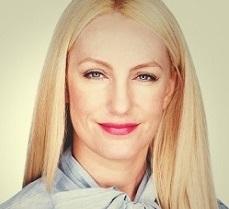You are here
- Home
- Business and Law in the time of COVID-19
- BLOG: Building Resilience in Pandemic Times
BLOG: Building Resilience in Pandemic Times

Social entrepreneur Dr Zoe Lawson is an MBA alumna.
Resilience;
noun
- The capacity to recover quickly from difficulties. The ability of a substance or object to spring back into shape; elasticity.
Like nylon. Ladies, think of that springy shapewear designed to disguise lumps and bumps. Men may prefer to imagine that stretchy, shiny cycling kit. Either way, it has a remarkable ability to immediately bounce back, even after the largest of dinners or longest of bike rides.
Ideally, we’d all be emulating nylon cycling shorts right now. Springing straight back into action regardless of what this pandemic throws at us. But things are far from ideal and, let’s face it, most of us were probably putting off such self-actualising goals like developing our personal resilience until we just had a little more time/money/space/motivation/whatever. And so winter has come and we, the grasshoppers, find ourselves hungry and searching for ways to cope emotionally in these extraordinary times.
It is certainly possible to build our own resilience but, like everything else from losing weight to tidying the garage, there is no magic bullet. It takes focused effort. Let Viktor Frankl be our guide here as he knows a thing or two about developing mental resilience in the most dire of circumstances. He was an Austrian psychologist born in 1905 and he was imprisoned in four concentration camps during the Second World War. His mother, father, brother and wife all perished there. He was freed in 1945 when the camps were liberated by Allied troops. In 1946, he published the book¹ ‘Man’s Search for Meaning’ chronicling his experiences and describing his psychotherapeutic method. He said that he wanted to ‘convey to the reader that life holds meaning under any conditions, even the most miserable ones’.
Now, this isn’t a race to the bottom of the sea of suffering – it is not to say that unless we’ve got it as bad as an inmate in a death camp, we’ve got little reason to complain. That said, if you’re in despair because your private jet has been grounded and Harrods is closed, there’s only a nanoscale violin playing. Let’s be realistic here, most people are on a sliding scale between these two extremes. Some face losing their health, loved ones or livelihoods as a result of the pandemic. Others will see their savings, relationships or mental health take a battering. We’re all in the same COVID-storm but we’re in different boats. And many of us could benefit from donning our resilience lifejackets.
So what can we do to build this resilience that will keep us afloat and into the (hopefully) more peaceful waters of post-vaccine 2021? First of all, it’s useful to be aware that, as humans, we have a bias for the negative². That is to say, even of equal intensity, things of a negative nature have a greater effect on us than those of a positive nature. This comes from our prehistoric ancestors, when being alert to sabre-tooth tigers was essential for survival. And as much as happening upon a wild raspberry would have been a nice surprise, it wasn’t an immediate life or death situation. Hence our negative bias was born. Unfortunately, it’s still with us today and is the reason why we give bad news disproportionally more emphasis than good. Keeping this in mind can help us put things into perspective.
Very few people make it through life unscathed by heartbreak or loss. Even great wealth cannot protect us from this. Buddhist philosophy tells us that suffering is an inevitable part of the human condition – physical and emotional pain, uncertainty and change are hallmarks of life³. If we attempt to resist the emotions brought about by the suffering of life, we can make our suffering worse. Current scientific research suggests that acknowledging our discomfort, identifying the negative emotions and how they make us feel, and not trying to hide from or deflect them, can help us heal⁴.
Holding opposing emotions in tension
Studies on the resilient among us show that those who bounce back quickest are those who are able to appreciate the positives in every day, however small, while also acknowledging the presence of pain and suffering⁵. We cannot wait until the day when everything is perfect to be happy. That day may never come and, even if it does, it will not last. Thus, we need to find the positives in the here and now, while at the same time living alongside the negatives.
I would like to end by returning to Viktor Frankl and two nuggets of his wisdom that are most pertinent to remember right now. First, he said that ‘when we are no longer able to change a situation, we are challenged to change ourselves’. The effects of this pandemic have made many of us feel powerless. But we do have the capacity to adapt, find meaning and learn, even in the midst of it. Last, he said that ‘for the world is in a bad state, but everything will become still worse unless each of us does his best’. It is up to us to do what we can to effect positive change – for ourselves, our families, our communities and the planet.
Good luck and Season’s Greetings for 2020 – roll on 2021!
References
¹ Viktor Frankl; “Man’s Search for Meaning : The Classic Tribute to Hope from the Holocaust”, Ebury Publishing, 2008.
² Baumeister, Roy F.; Finkenauer, Catrin; Vohs, Kathleen D. (2001). Bad is stronger than good. Review of General Psychology. 5 (4): 323–370.
³ Dalai Lama; “The Art of Happiness : A Handbook for Living”, Penguin, 2010.
⁴ Vanessa King; “10 Keys to Happier Living”, Headline Publishing Group, 2017.
⁵ Maria Sirois; “Happiness in Dark Times”. https://www.youtube.com/watch?v=AnDVwGxMTto, Accessed December 2020.
